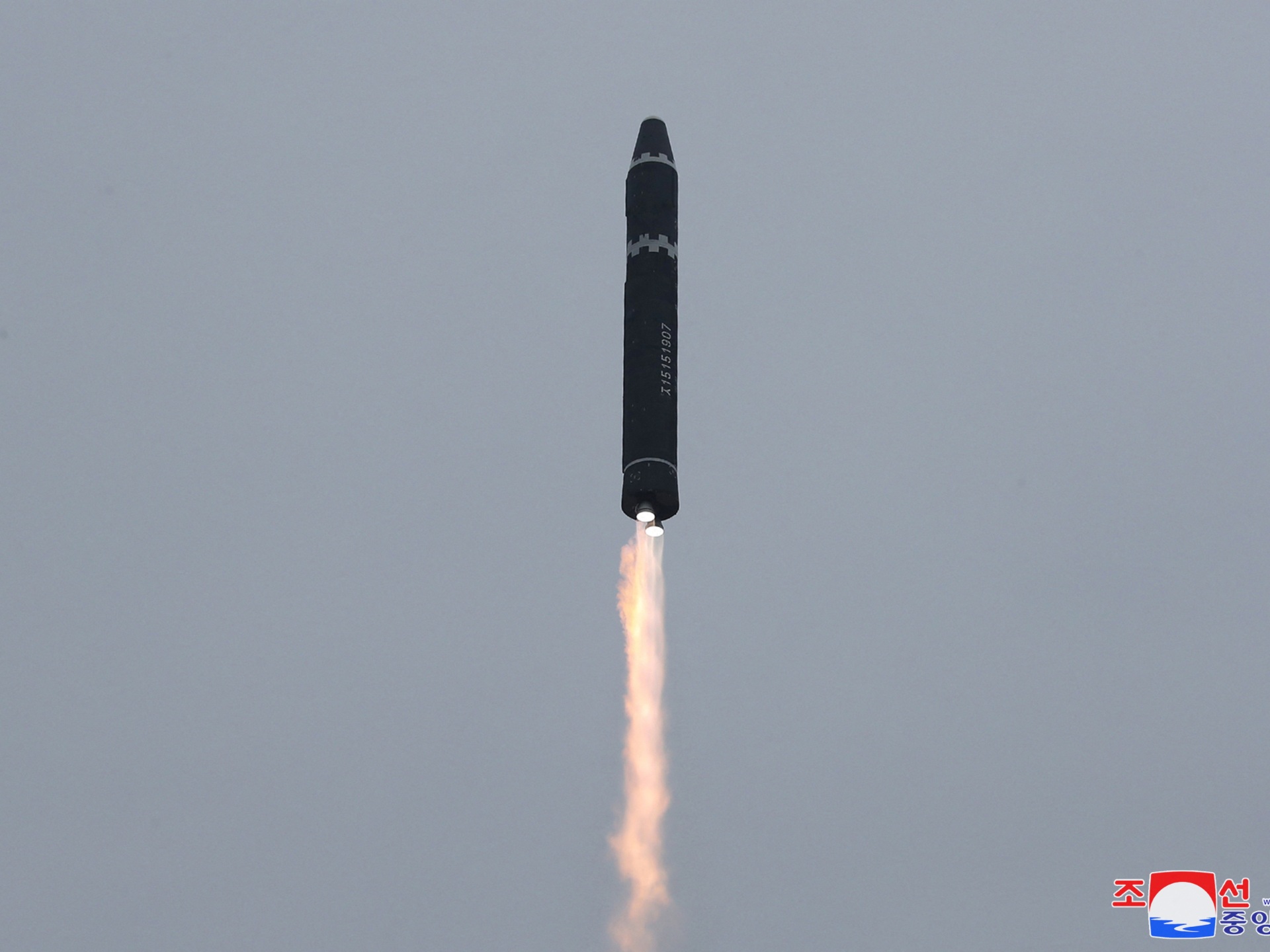Seoul unveils sanctions against four individuals and five entities following latest missile launches.
South Korea has announced new sanctions targeting North Korea’s weapons programmes following Pyongyang’s latest missile launches.
The measures target four individuals and five entities, including a South African national and two Singaporean shipping firms, linked to North Korea’s development of nuclear weapons and missiles, South Korea’s foreign ministry said on Monday.
The announcement came after North Korea fired two short-range ballistic missiles from its east coast, two days after it test-fired an intercontinental ballistic missile (ICBM).
South Korea and the United States on Sunday staged joint air drills involving B-1B bombers in response to Pyongyang’s ICBM launch.
South Korea, the US and the United Nations condemned North Korea’s latest missile launches as illegal provocations.
Andrei Lankov, a North Korea scholar and professor at Kookmin University in Seoul, said further sanctions are unlikely to halt North Korea’s development of nuclear weapons and ballistic missiles.
“North Koreans are determined to develop ICBMs capable of hitting the United States, partially as a deterrent, partially as a way to blackmail the US from blackmailing South Korea if and when the North Koreans decide it’s time to attack North Korea,” Lankov told Al Jazeera.
“If you ask me what can be done, my short answer is nothing,” Lankov added.
South Korean President Yoon Suk-yeol’s administration earlier this month sanctioned four North Korean individuals and seven entities over cyberattacks believed to be linked to the country’s weapons programmes, in Seoul’s first such measures targeting Pyongyang’s hacking activities.
In December, Seoul joined the US and Japan in announcing sanctions over Pyongyang’s repeated missile tests, identifying eight individuals and seven institutions it said were connected with North Korea’s missile and nuclear weapons development programme.
South Korea and North Korea have a tense relationship stemming from the division of the Korean Peninsula into the communist North and capitalist, pro-US South in the aftermath of World War II.
The two Koreas fought a bloody war from 1950-1953 that ended in an armistice that left the two sides technically in a state of war to this day.
Source
:
Al Jazeera and news agencies

